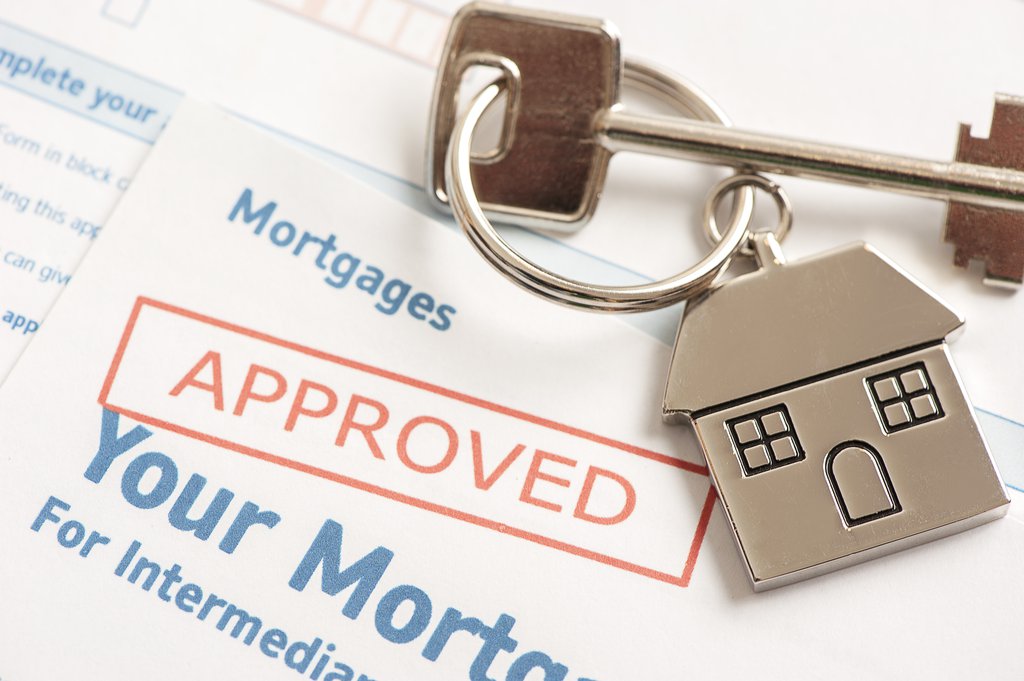What Type of Mortgage Lender is Right for You?

Shopping for a mortgage can be overwhelming with so many different mortgage options out there. But, when it comes to one of the biggest and largest investments of your life, the first step is to get out there and do your research.
When you pick a mortgage lender , don’t forget that you are likely going to be saddled with them for the next 3-5 years and will likely be taking the next 20 to 30 years to pay off your mortgage. While getting a good rate is crucial, what’s equally essential is choosing the right lender that will provide you with the terms and flexibility that you may need down the road. With banks, credit unions, trust companies, and private mortgage lenders, there are many mortgage solutions to choose from. Figuring out what is going to work best for you will depend on a number of different things. Let’s take a closer look at what types of lenders are out there.
“A” Lenders vs “B” Lenders vs Private Lenders
When shopping around for a mortgage, there are three types of mortgage lenders: Institutional “A” lenders, Institutional “B” or Alternative Lenders, and Private Lenders. Traditional lenders like Canadian banks and credit unions are dubbed as “A” Lenders, but some credit unions might also offer certain “B” or Alternative-A mortgage solutions for borrowers who cannot quite qualify for a AAA mortgage rate.
These kinds of AAA mortgage lenders cater to homebuyers and homeowners who have good credit scores and steady income, putting them in the “A” category. Who are some of the top banks who offer some of the best AAA mortgage options in the country? TD Canada Trust (also known as TD Bank), Manulife Bank (yes, they’re not just an insurance company, but a really great mortgage lender and bank!), B2B Bank, Equitable Bank, and The Bank of Nova Scotia also known as Scotiabank.
When you are turned away from the big banks and credit unions because of lower income and poor credit that would lead to a failed mortgage stress test, then an alternative lender, sometimes referred to as a “B” lender, would be the way to go. Alternative lenders are ideal for those with bad credit seeking a bad credit mortgage , low income, people who are self-employed, or people new to the country. But buyer beware! Be realistic about what you can afford and the higher rates that come along with getting a mortgage when your credit or income situation is not the greatest. Be sure to understand those monthly payments, and figure out what you can actually afford so that you do not wind up with a mortgage plan that you will not be able to pay for or pay off in the long run.
Let’s explore what important points you will need to consider when picking the best mortgage lender for you.
Banks
When it comes looking around for a mortgage lender, one of the main reasons you take your mortgage to the bank is because that is often what you saw your parents do or because you trust the banks to have your best interest in mind. That might not always be the case and to your surprise, your mortgage business might not be welcomed with open arms, even if you have been banking with the same bank for many years.
How do you qualify for a mortgage at a bank?
Banks and their lending guidelines and policies are highly regulated by government imposed rules, such as the B20. With today’s strict Mortgage Stress Test rules that the banks must implement, clients who are even able to qualify for a mortgage at the bank are generally high income earners with an excellent credit rating and have enough savings to cover monthly expenses and existing debts. If you have less than 20% saved up for a down payment, then the need to have exceptional income and credit become even more of a determining factor when applying for a mortgage through a bank because you will need to qualify for and purchase Mortgage Default Insurance from a mortgage insurer such as CMHC, Sagen (formerly Genworth Financial), or Canada Guaranty.
What is the mortgage stress test?
Bank borrowers must qualify by passing a “ mortgage stress test,” a new criteria that was introduced back in 2017 by OFSI or the Office of the Superintendent of Financial Institutions. The idea behind the stress test is to protect Canadians from “mortgage stress” by not letting them take on a bigger mortgage than they can comfortably afford should the interest rates rise at the time of their mortgage renewal period. This is done to help reduce the chances that a homeowner could be left unable to make their monthly mortgage payments if interest rates grow in the future. In order to pass the test, they will need to figure out how much of a mortgage you can take on at a rate that is higher by at least 2% than the actual rate that you would qualify for at your bank.
To obtain the mortgage, you need your bank to approve you as a qualifying client. According to the regulations, the Bank has to conduct a standard stress test to see if you would be able to pay mortgage payments at the “stressed” mortgage rate which can be calculated in two ways, and the Bank will apply the rate that is higher of these two calculations:
- First method of “stress test rate” calculation - it includes the mortgage rate mentioned in your contract plus additional 2% “just in case”.
- Second method of “stress test rate” calculation - calculate the stressed mortgage rate by taking the current Bank of Canada’s five year benchmark qualifying rate which as of the date of this publication is 4.79%.
The bank will see if you can handle the higher rate in order to qualify. Once you’ve been approved at the higher rate then you or your mortgage broker can negotiate with the bank for a lower mortgage rate as an actual contract rate.
Monoline Lenders
What is a monoline lender?
A monoline lender is a lender that only offers one product line, such as mortgages, hence the name MONOline, since “mono” is a prefix that means “one” or “single”, therefore “monoline” means one-line or single-line of products or services. They do not take deposits like a bank would, they do not have physical retail locations such as store fronts, and they do not provide non-lending products.
Why don’t monoline lenders take deposits?
Because monoline lenders do not have the overhead costs associated with marketing, holding multiple product lines, renting retail space, or having thousands of employees such as banks, they oftentimes are able to offer lower interest rates on mortgages with better and more flexible repayment terms than many banks can. Monoline lenders such as CMLS, Merix and Marathon Mortgage are some of the monoline lenders that Clover Mortgage works with who at many times offer better rates and mortgage products than many of the big banks do.
Are monoline lenders better than big banks?
Although their low mortgage rates and oftentimes flexible mortgage terms can be more competitive than banks, the qualification criteria is similar to that of the big banks. With a monoline lender, the stress test still applies the same way as it would with a bank, however, if you qualify at a bank, you should always check with a mortgage broker to see if they can get you a lower rate and better terms through a monoline lender than what is offered to you by a bank.
Do monoline lenders offer alternative mortgage products like “B” mortgages or subprime mortgages?
Yes, some monoline lenders like Merix Financial and CMLS offer alternative “B” mortgage lending options that are ideal for subprime mortgage borrowers. NPX (a division of Merix Financial), and AVEO (a division of CMLS Financial) are some examples of these types of lenders. They offer much more flexible qualifying criteria than a bank or their A monoline counterparts, and can be great alternatives to trust companies when it comes to alternative lending solutions.
Credit Unions
What if you have good credit with a decent income but are worried about passing, or cannot pass the mortgage stress test?
Do not worry because there are many other ways to get that dream house or property! Take for example credit unions and other lenders that are not federally regulated. They are not required to follow the same qualification and mortgage stress test rules as a bank. This means that a credit union is able to qualify a borrower for a mortgage using the actual contract rate that the borrower can get from the credit union. Although these rates tend to be slightly higher than the lowest bank rates, they are usually significantly lower than the minimum qualifying stress test rate. As a result, this can help a borrower qualify for tens of thousands and even hundreds of thousands of dollars more than what they would be able to qualify for at a bank or monoline lender.
What do credit unions do?
Credit unions are full service financial institutions that operate similar to the major banks, offering not only mortgages but also chequing and savings accounts, business loans, and even provide certain investment advice.
Some examples of credit union lenders in Toronto, and other parts of Ontario and Canada are DUCA Credit Union, First Ontario Credit Union, and Meridian Credit Union.
How is a credit union different from a bank?
While it sounds like banks and credit unions are the same, the similarities stop there. Credit unions are member owned cooperatives, meaning their customers have a say in their operations. They are also not-for-profit, meaning that any revenue is put right back into the organization, while the bank's sole purpose is to generate profit. Credit unions are also known to offer outstanding customer service. Another positive point is that credit unions offer access to thousands of surcharge-free ATMs.
What are some of the drawbacks to getting a mortgage from a credit union?
Some of the drawbacks of working with credit unions is that they offer fewer financial products, their locations are limited with less branches, and their online banking options and mobile apps are not as technologically-advanced as those of most banks.
Trust Companies
Why would you take your mortgage to a trust company?
When a homeowner or homebuyer chooses to turn to an alternative lender or “B” lender, it is usually because they do not qualify for a mortgage at the banks, monoline lenders, or credit unions. They are not able to pass the strict mortgage stress test at the moment due to bad credit and/or limited income.
The great thing about getting a mortgage or refinancing your mortgage from a trust company is that they offer much more flexibility than the banks, monoline lenders, and credit unions do when it comes to helping you qualify for the mortgage. This means that if you are facing financial challenges, a trust company can in many circumstances still find a mortgage solution that works for you. That being said, be prepared for higher interest rates and monthly mortgage payments because of the additional perceived risk that a trust company is taking when lending to someone who has had credit issues in the past or who’s income to debt ratios are not ideal.
How does a trust company work?
A trust company is a financial institution that operates under either provincial legislation and works similarly to a bank with a few big exceptions. In addition to having much more flexible mortgage qualifying options than a bank, trust companies can also manage estates, trusts, pension plans and agency contracts due to its fiduciary role, which banks are not allowed to do. A few examples of trust companies are Community Trust, Effort Trust.
Private Mortgage Lenders
If you have really bad credit, no credit, and/or a low or limited income then a private mortgage lender might be your best and only option.
A private mortgage is different from a bank mortgage, partly because it is available to more people because it is much easier to qualify for and get approved for. Private lenders are more concerned about the condition, location, marketability, and value of your property. Some examples of institutional private lenders include Fisgard, CMI (Canadian Mortgage Inc.) and Firm Capital Corporation. Since private mortgage lenders place very little importance on your credit score or income, it tends to be much faster and easier to qualify, get approved, and get your mortgage loan funded. In some cases it can take as little as 24 to 48 hours to get your private mortgage application approved and funded!
Oftentimes they will offer a mortgage based solely on the available home equity and property value. This allows the homeowner or homebuyer to borrow against the equity of the home. What is the interest rate on a private mortgage at Clover Mortgage ? Similar to a trust company, private mortgage lenders will charge higher interest rates and also a separate lender fee since the clients are seen as riskier to the lender due to their credit history and income situation.
Since private lenders do not typically pay mortgage brokers directly, in most cases the mortgage brokerage will also charge a small separate fee to the borrowers for the work that they put into processing the application, and finding and negotiating with the private lender.
Private first mortgage rates can start as low as 3.99% and can go as high as 7.99% or even higher depending on location, loan to value and a few other variables. The lender and brokerage fees are added in addition to these interest rates. A private second mortgage carries an even bigger risk for the lender and the mortgage interest rates for a private second mortgage start as low as 6.99% plus lender and broker fees, and can go higher depending on a variety of factors.
Private mortgages are usually structured to be shorter term loans ranging from as short as a few months to as long as two years in some cases. For the most part, private lenders prefer committing to one year at a time.
If you feel like you are drowning in debt, then consolidating all or some of your higher interest rate debts through a second mortgage or home equity loan can help you dig your way out of debt faster while combing all of your monthly payments into one much lower monthly payment amount. This has the potential to free up your cash flow and help you breathe a little easier. You can use a portion or all of the newly freed up cash flow to put towards paying down the principal of your second mortgage loan to get yourself out of debt even faster!
Which mortgage lender is right for you?
The answer lies in your income level, your credit score, your down payment amount saved, your combined debt, and certain other factors. The biggest factor deciding where you take your mortgage business is whether you can pass the mortgage stress test or not. Whether you get your mortgage from a bank, monoline lender, credit union, trust company or private mortgage lender, a knowledgeable mortgage broker can help you get the best mortgage for your needs.
A good and experienced mortgage broker can help you through the mortgage application process and find you the right lender who will offer you the best mortgage rate and terms that you can qualify for. Unlike going to a bank directly, mortgage brokers have access to many many different kinds of lenders and rates.
Here at Clover Mortgage, we have access to over 40 different lenders ranging from the big banks to monoline lenders, credit unions, trust companies, and private lenders. Give us a call today at 416-674-6222 or email us at info@clovermortgage.ca to find out more about how we can find the perfect mortgage solution to meet all your home buying needs.





